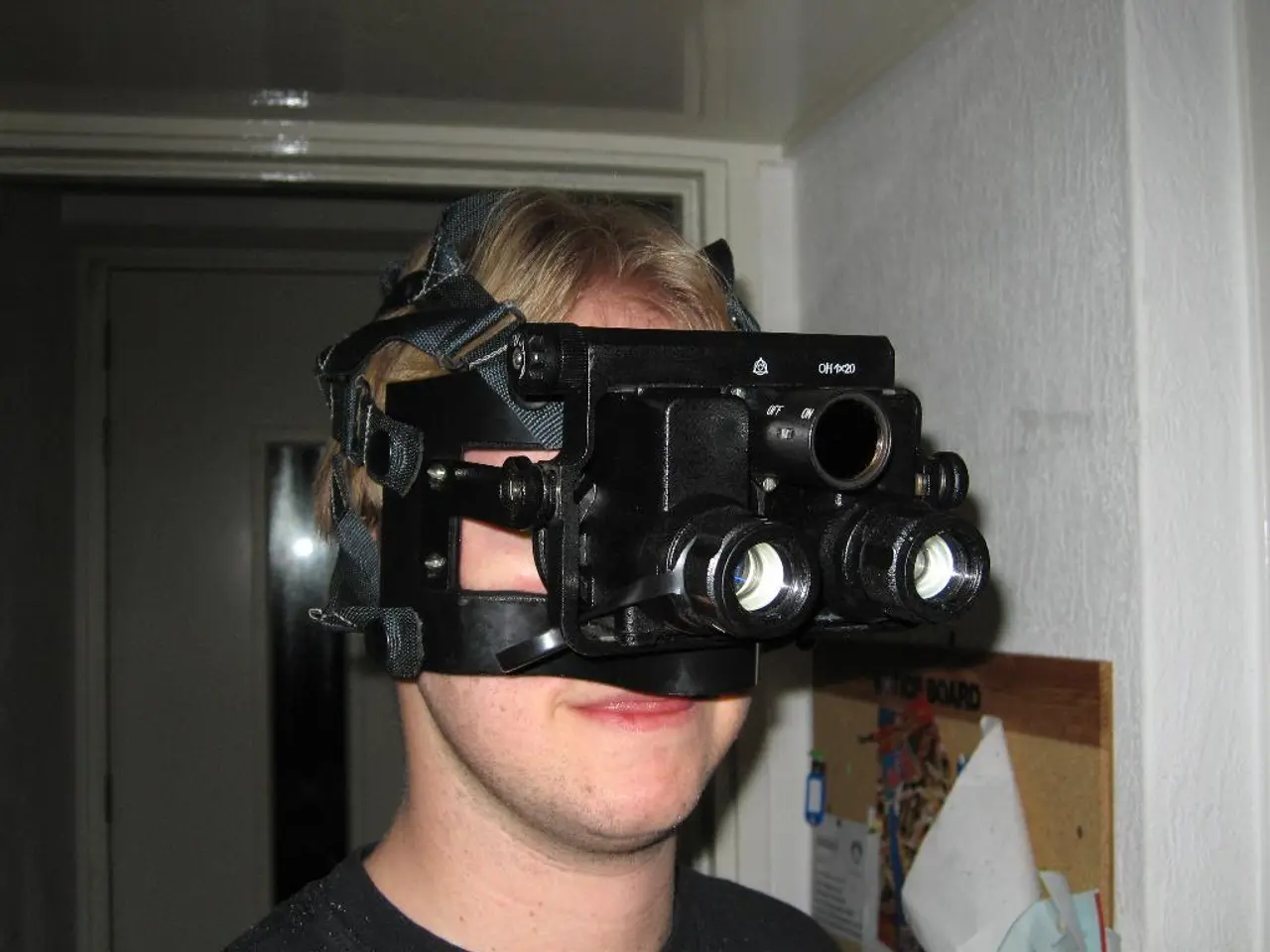Researchers Employ Virtual Reality to Modify Individuals' Conscious Dreams in Remarkable Breakthrough
In a groundbreaking study published in the journal Neuroscience of Consciousness, researchers have demonstrated the potential of virtual reality (VR) and sleep-engineering technologies to induce lucid dreams involving compassion, ego-loss, and long-lasting psychological changes.
The study, conducted on individuals who claimed to have regular lucid dreams, involved exposing a quartet to a specially designed VR experience called Ripple, three hours before bedtime. This virtual reality experience aimed to generate feelings of awe, oneness, and ego-attenuation.
During the Ripple VR sessions, participants saw themselves as glowing spheres of light that moved in synchrony with other people's "energetic bodies" and merged with them to produce a sense of oneness. This immersive pre-sleep VR training with immersive programs like Ripple fostered feelings of compassion, ego dissolution, and oneness, simulating mystical and ego-loss states similar to those induced by psychedelics, but in a controlled, drug-free setting.
The researchers played sounds from the Ripple VR to trigger lucid dreams resembling the VR experience in the participants. Three participants experienced lucid dreams about Ripple, and all four reported dreams containing elements of Ripple.
In addition to lab-based techniques, the study employed VR combined sensory cue techniques. This involved familiarising participants with a virtual sleep lab environment and practising reality checks in VR. This led to participants dreaming about the virtual environment (known as “lab dreaming”), increasing the likelihood of becoming lucid during sleep. Adding tactile stimulation cues during sleep further enhanced reality testing and lucidity induction.
The immersive VR experiences before sleep helped bridge waking awareness with dreaming, facilitating therapeutic opportunities and personal growth by reprogramming subconscious emotional content. Research indicates that VR can influence dream content and emotions, not only aiding lucid dream induction but also shaping the emotional tone of the dream itself, consistent with feelings of compassion and ego-loss.
The study envisions many ways for dream content to synchronise with ego-attenuation and the perpetuation of awe in VR environments. The researchers conclude that their results "underscore a way to expand VR's benefits via VR-based dreaming." This exciting development opens up possibilities for leveraging virtual reality and sleep-engineering technologies for therapeutic and personal growth in waking life.
The study's findings suggest testing the degree to which lucid dreaming combined with VR can benefit psychological well-being. As research in this area continues to evolve, we may soon see virtual reality becoming a powerful tool for inducing profound emotional states and promoting lasting psychological transformation.
- The groundbreaking study in Neuroscience of Consciousness employed virtual reality (VR) and sleep-engineering technologies to induce lucid dreams with long-lasting psychological changes.
- In the study, participants were exposed to a VR experience called Ripple, which aimed to generate feelings of awe, oneness, and ego-dissolution.
- The use of VR in the study cultivated feelings of compassion, ego dissolution, and oneness, mimicking mystical states typically induced by psychedelics but in a drug-free manner.
- The four participants in the study reported having lucid dreams containing elements of the Ripple VR experience.
- The research also employed a combination of lab-based techniques and VR technology to increase the likelihood of lucid dreams, shifting the emotional content of dreams towards feelings of compassion and ego-loss.
- As therapeutic opportunities and personal growth potential in waking life, this could pave the way for virtual reality and sleep-engineering technologies to be leveraged for mental health, health-and-wellness, fitness-and-exercise, and therapies-and-treatments.




